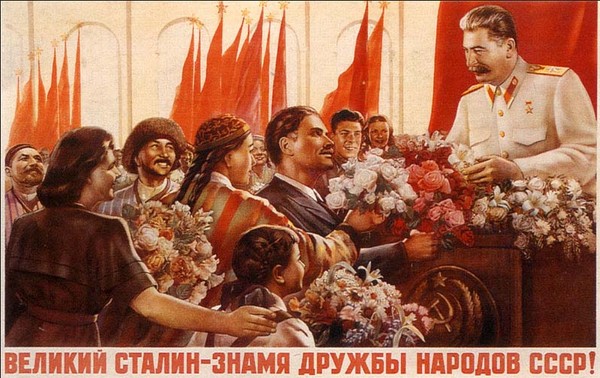Stalin killed millions. A Stanford historian answers the question, was it genocide? - Stanford News
By Cynthia Haven
In his new book, historian Norman Naimark argues that the definition of genocide should include nations killing social classes and political groups.
Mass killing is still the way a lot of governments do business.
The past few decades have seen terrifying examples in Rwanda, Cambodia, Darfur, Bosnia.
Murder on a national scale, yes – but is it genocide? "The word carries a powerful punch," said Stanford history Professor Norman Naimark. "In international courts, it's considered the crime of crimes."
Nations have tugs of war over the official definition of the word "genocide" itself – which mentions only national, ethnic, racial and religious groups. The definition can determine, after all, international relations, foreign aid and national morale. Look at the annual international tussle over whether the 1915 Turkish massacre and deportation of the Armenians "counts" as genocide.
Article from 2010,
http://news.stanford.edu/news/...
Advertisement / Reklaam
Advertisement / Reklaam
Viimased kommentaarid
Kommentaarid on kirjutatud EWR lugejate poolt. Nende sisu ei pruugi ühtida EWR toimetuse seisukohtadega.
unanimous04 Aug 2015 11:25
You are insane!
stalinec02 Aug 2015 11:41
http://one-evil.org/content/pe...By 1922, the Bolsheviks had won the Civil War, but left the whole country broke. The Rothschilds and the American Jesuit Bankers on Wall Street made a simple offer - they would help fund and bail out new new Soviet Union, providing Stalin was given a key role. Thus on April 3, 1922, Stalin was made General Secretary of the Central Commitee, a post hew subsequently grew to become the most powerful.
In spite of his position, Lenin still sought to thwart the influence of Stalin and in December 1923 it came to a head with Lenin planning to have Stalin finally eliminated. In January 1924, Jesuit Superior General Wlodimir Ledochowski gave the order to Stalin allowing him to kill Lenin and on January 21, 1924, Lenin was poisoned to death at the age of 53.
http://www.bing.com/search?cp=...
Loe kõiki kommentaare (2)

























